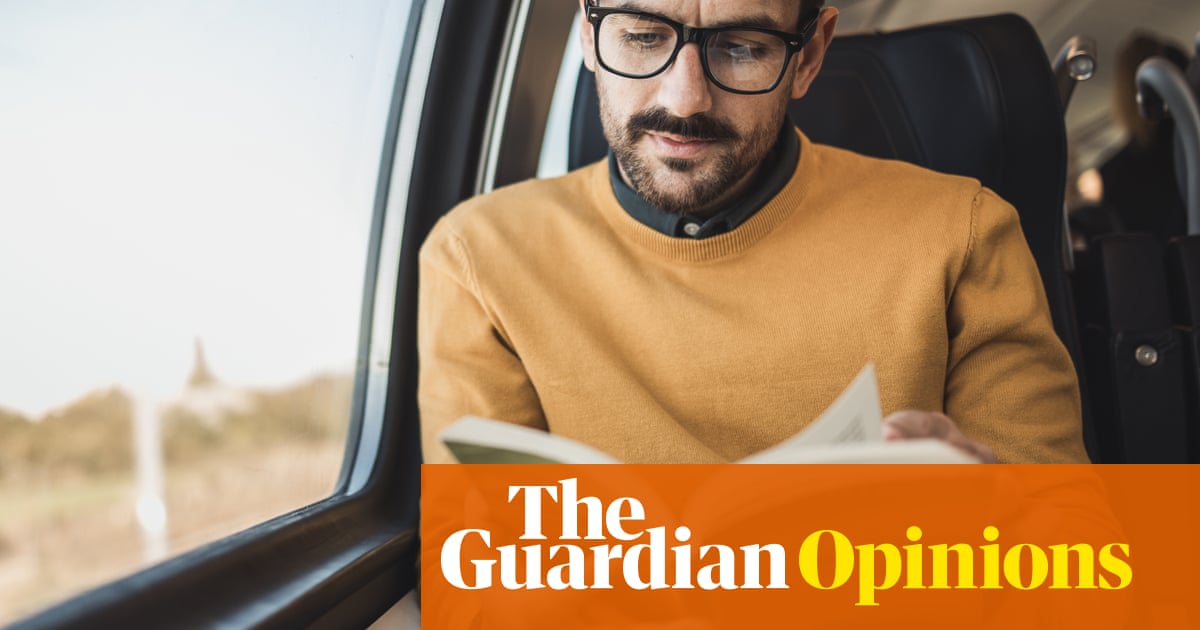Everything changes so everything can stay the same. In the beginning I read a lot. I read paperback books. The Famous Five, the Secret Seven and all that stuff. I had – have, actually – all 21 Famous Five books. They’re in paperback, apart from the fifth one, Five Go Off in a Caravan, which is in hardback. A present from my nan. Nice. But I preferred paperbacks. I’ve never seen the point of hardbacks. They’re unwieldy, harder to hold in bed, especially under the sheets when I was supposed to be asleep.
In my teens I raced through Agatha Christie, Alistair MacLean and the like, and Reader’s Digest too, countless editions of which were lined up beside every toilet in the house. Then schooling started interfering with my tastes and I got into Thomas Hardy in a big way, and other big thick, proper paperback novels. After my A-levels I went cycling in France with a mate, which was a miserable experience, saved only by the enjoyment I got from reading Anna Karenina, the battered doorstop edition of which I still have but am fearful of looking at lest it completely falls apart.
Then I went to university to study English literature and had the love of reading sucked out of me. Reading, in my book, was for enjoying, not for studying. I didn’t enjoy the studying of it, so I inevitably stopped enjoying the reading of it. Those reading years are a dismaying blur. The only writer to survive the cull in my love of literature was Evelyn Waugh. Everything else seemed to be a struggle. I blamed myself for not being clever enough. When I left university, I all but left reading behind too. I came across Raymond Carver, who I found easy to read and loved very much. And Richard Ford, who I found hard to read but still managed to love. Apart from that, the rest of my 20s and, and my 30s, passed by almost fiction-free.
But it all came flooding back, oddly, with the advent of the digital age. The Kindle seemed to free me up to wade back into literature until I was out of my depth and swimming freely again. I’m not sure why this is so. I think it might be that physical books had been triggering strong feelings of intellectual inadequacy from back in the day. Who knows? I didn’t care. I was loving reading all over again.
But as much as the ebook gave me something beautiful back, slowly but surely it took it all away again. I think the problem has been the smartphone rather than the Kindle. Reading ebooks on the Kindle app on the iPhone rather than on the Kindle itself was too convenient an option. But, just as smartphones relentlessly erode our capacity to focus on life itself, slowly but surely my ability to engage with any one thing on them, certainly anything as long as a novel, drained away as briskly as the phone’s battery.
So the other week I picked out one of the countless old-style Penguin paperbacks on my bookshelf. It was A Good Man in Africa by William Boyd. Then the peculiarly named Doctor Fischer of Geneva or The Bomb Party by Graham Greene. Then Muriel Spark, Margaret Drabble and anyone else I fancied from shelves at home or in charity shops. I’m back to the paperback format of my childhood and my reading life has begun again. These little beauties are barely 25% bigger than my iPhone and, most importantly, you can’t swipe in and out of them. Suddenly I can engage with words again. I put the phone away, open the book, and read, actually read. On the tube, snootily regarding the phone-starers, I feel a bit of a clever dick. This will last until I give in to the temptation to revisit the Famous Five. I can’t wait.
Adrian Chiles is a broadcaster, writer and Guardian columnist
